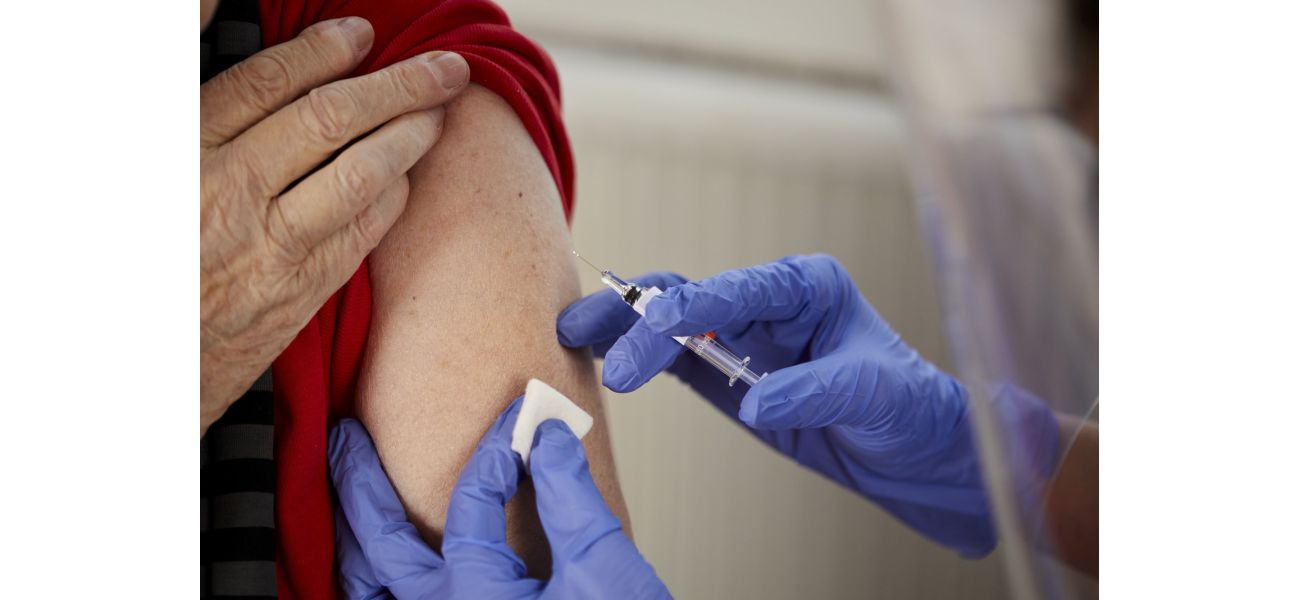Who can receive a Covid booster vaccine during the upcoming autumn and winter season?
England reported 102 Covid deaths and 1,465 hospital admissions in the week to August 30.
September 17th 2024.

The Covid situation in the UK has taken a concerning turn with a recent 4.3% increase in cases week on week. This comes as a new and more potent strain, known as the 'stronger' Covid XEC, is making its way across the globe. As a result, many individuals in the UK are seeking out their next booster jab in an effort to protect themselves against this new threat.
The XEC strain is a combination of two variants, KS.1.1 and KP.3.3, and was initially discovered in Germany back in June. Since then, it has been identified in 13 other countries. While the UK Health Security Agency has not yet released any data on this variant, the recent rise in Covid cases is a cause for concern. In fact, there were 102 reported deaths from Covid in England in the last week of August, and 1,465 patients were admitted to hospitals with the virus.
Experts in the health field are worried that the XEC strain could become the dominant variant during the colder months, which could lead to a high demand for booster jabs. So, who is eligible for these booster shots? The vaccine is recommended for those who are at an increased risk of falling ill from the virus. Typically, these shots are offered through the NHS in the spring and autumn, just before winter sets in. This includes individuals who are 65 years or older, pregnant, have a weakened immune system, or live in a care home for older adults.
If you are eligible for a booster jab, you may be wondering how to go about booking an appointment. The NHS will reach out to those whose health records suggest they meet the criteria for a booster. You can also speak to your GP or specialist, who can assess if you need a booster and help you find a local appointment. Additionally, you can book online, attend a walk-in clinic, or access one through your care home.
One question that is on many people's minds is whether they can go to work if they have Covid. According to the NHS, it is best to stay at home and avoid spreading the infection if you are feeling unwell with Covid. Once you no longer have a fever, you are typically considered well enough to return to work or school. It is worth noting that most individuals are no longer infectious after five days of testing positive. However, at this time, there is no legal requirement to self-isolate.
The XEC strain is a combination of two variants, KS.1.1 and KP.3.3, and was initially discovered in Germany back in June. Since then, it has been identified in 13 other countries. While the UK Health Security Agency has not yet released any data on this variant, the recent rise in Covid cases is a cause for concern. In fact, there were 102 reported deaths from Covid in England in the last week of August, and 1,465 patients were admitted to hospitals with the virus.
Experts in the health field are worried that the XEC strain could become the dominant variant during the colder months, which could lead to a high demand for booster jabs. So, who is eligible for these booster shots? The vaccine is recommended for those who are at an increased risk of falling ill from the virus. Typically, these shots are offered through the NHS in the spring and autumn, just before winter sets in. This includes individuals who are 65 years or older, pregnant, have a weakened immune system, or live in a care home for older adults.
If you are eligible for a booster jab, you may be wondering how to go about booking an appointment. The NHS will reach out to those whose health records suggest they meet the criteria for a booster. You can also speak to your GP or specialist, who can assess if you need a booster and help you find a local appointment. Additionally, you can book online, attend a walk-in clinic, or access one through your care home.
One question that is on many people's minds is whether they can go to work if they have Covid. According to the NHS, it is best to stay at home and avoid spreading the infection if you are feeling unwell with Covid. Once you no longer have a fever, you are typically considered well enough to return to work or school. It is worth noting that most individuals are no longer infectious after five days of testing positive. However, at this time, there is no legal requirement to self-isolate.
[This article has been trending online recently and has been generated with AI. Your feed is customized.]
[Generative AI is experimental.]
0
0
Submit Comment





